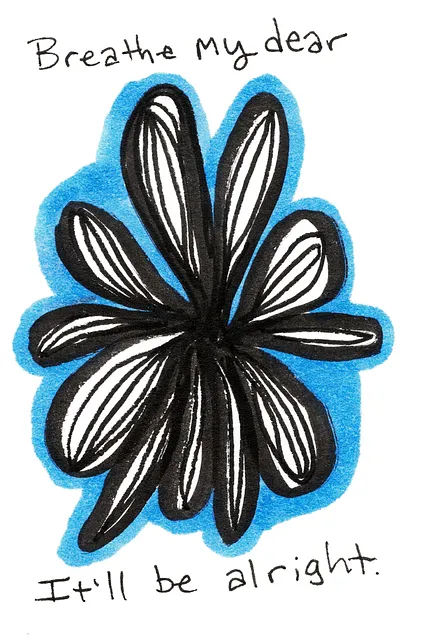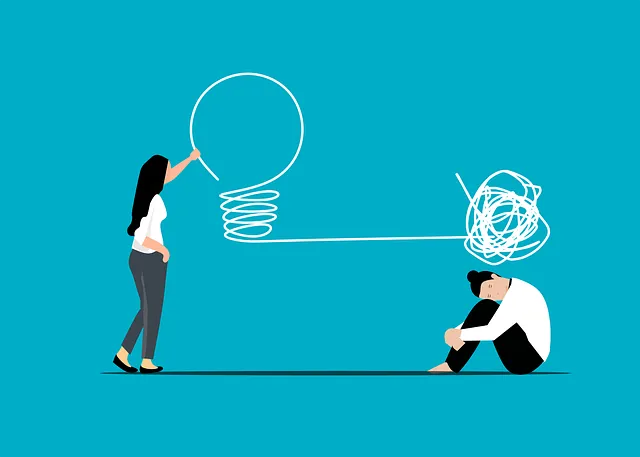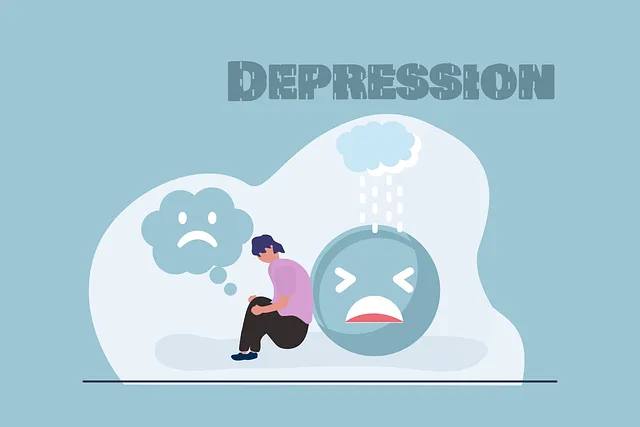Mental wellness journaling, recognized by Kaiser's Wheat Ridge services as a powerful tool, offers individuals a private space for introspection and self-awareness through documenting thoughts and emotions. This practice reduces stigma, encourages self-connection, and aids in understanding mental health journeys. Structured prompts integrated into education programs empower people to manage their well-being. Kaiser's evidence-based services include journaling as a therapeutic technique, promoting mental clarity, and improving communication skills. By setting up journals with various tools and techniques, individuals can gain insights and enhance overall psychological well-being.
Mental wellness journaling is a powerful self-care practice that offers a safe space for reflection and healing. In this guide, we explore how this simple yet profound exercise can enhance mental well-being. From understanding its benefits to discovering effective recording techniques, you’ll learn strategies to unlock your journal’s therapeutic potential. Discover different prompts for introspection and gain tips from Kaiser Mental Health Services Wheat Ridge on integrating journaling into daily routines. Uncover the transformative power of self-expression.
- Understanding Mental Wellness Journaling: Unlocking Self-Reflection and Healing
- The Benefits of Journaling for Mindfulness and Stress Reduction
- Setting Up Your Journal: Tools and Techniques for Effective Recording
- Exploring Different Types of Prompts for Deep Introspection
- Integrating Journaling into Daily Routines: Tips from Kaiser Mental Health Services Wheat Ridge
Understanding Mental Wellness Journaling: Unlocking Self-Reflection and Healing

Mental wellness journaling is a powerful tool for self-reflection and healing, offering individuals a private space to explore their thoughts and emotions. By documenting experiences, feelings, and insights, it becomes an effective way to process and understand one’s mental health journey. This practice encourages folks to connect with themselves on a deeper level, especially when supported by evidence-based practices like those often found in Kaiser’s mental health services in Wheat Ridge.
Through journaling, individuals can gain valuable insights into their triggers, coping mechanisms, and overall resilience. It plays a significant role in Mental Illness Stigma Reduction Efforts as it promotes self-awareness and helps normalize the act of expressing vulnerability. Moreover, structured journaling prompts tailored to various themes, such as gratitude or stress management, can be an integral part of Mental Health Education Programs Design, empowering individuals to take charge of their mental wellness.
The Benefits of Journaling for Mindfulness and Stress Reduction

Journaling has emerged as a powerful tool for promoting mental wellness and cultivating mindfulness. When individuals dedicate time to write down their thoughts, feelings, and experiences, they create a space for introspection and self-awareness. This practice allows one to gain valuable insights into their emotional states, identify triggers for stress or anxiety, and develop healthier coping mechanisms. By offloading thoughts onto paper, so to speak, people can reduce the mental burden associated with daily challenges, fostering a sense of calm and clarity.
In today’s fast-paced world, where stress and anxiety are prevalent, Kaiser’s Mental Health Services in Wheat Ridge offers journaling as part of its holistic approach to well-being. This simple yet effective practice is often integrated into therapy sessions and mental health education programs designed to enhance social skills training. Journaling provides a safe and private space for individuals to explore their thoughts, express emotions, and track progress over time. Additionally, communication strategies derived from journaling can improve self-expression and interpersonal connections, as it encourages people to articulate their feelings more effectively.
Setting Up Your Journal: Tools and Techniques for Effective Recording

Setting up your mental wellness journal is a powerful first step towards prioritizing your psychological well-being. At Kaiser Permanente in Wheat Ridge, we understand the importance of self-care and offer various resources, including mental health services tailored to individual needs. One effective tool for many is keeping a journal, serving as a safe space to record thoughts, emotions, and experiences.
To establish an efficient journaling routine, consider the tools at your disposal—a dedicated notebook, pen, or even digital note-taking apps—that feel comfortable and conducive to expression. Techniques like setting specific themes for each entry, utilizing prompts, or practicing free writing can enhance the process. For instance, reflecting on daily activities that brought joy or identifying areas of stress through a risk assessment, similar to what’s explored in mental wellness coaching programs development, can provide valuable insights. This practice, coupled with listening to inspiring mental wellness podcasts series production, can significantly contribute to an individualized journey towards better mental health and overall well-being.
Exploring Different Types of Prompts for Deep Introspection

Journaling is a powerful tool for self-reflection and mental wellness, offering a safe space to explore thoughts and emotions. When it comes to deep introspection, prompts play a crucial role in guiding your writing and uncovering insights. Different types of prompts can facilitate various aspects of personal growth and emotional understanding.
At Kaiser, the mental health professionals in Wheat Ridge emphasize the importance of tailored approaches for each individual. They suggest starting with open-ended questions that encourage free-flowing thoughts, such as “What’s been on your mind lately?” or “Describe a challenging situation and how you navigated it.” These prompts allow for an honest expression of feelings and experiences. Additionally, incorporating prompts focused on gratitude, like reflecting on daily positives, can enhance well-being. For instance, “Write about three things you’re grateful for today” not only promotes positive thinking but also serves as an effective stress reduction method. Exploring empathy building strategies through journaling, such as imagining others’ perspectives, can foster deeper connections and communication skills, a valuable aspect of mental health support in Wheat Ridge.
Integrating Journaling into Daily Routines: Tips from Kaiser Mental Health Services Wheat Ridge

Integrating Journaling into Daily Routines, as suggested by Kaiser Mental Health Services Wheat Ridge, can be a transformative practice for cultivating mental wellness. By dedicating just a few minutes each day to self-reflection and expression, individuals can harness the power of their thoughts and emotions. This simple yet profound habit allows one to navigate life’s challenges with greater resilience and clarity.
Kaiser offers valuable insights through its Mental Wellness Podcast Series Production and Stress Management Workshops Organization, encouraging people to view journaling as a tool for personal growth. It is also beneficial for improving social skills, a key aspect highlighted in their Social Skills Training programs. Regular writing can help individuals process their experiences, set intentions, and track progress, ultimately fostering a deeper connection with themselves and promoting overall mental well-being.
Mental wellness journaling is a powerful tool accessible to everyone, as evidenced by the guidance offered by Kaiser Mental Health Services Wheat Ridge. By integrating this practice into daily routines, individuals can unlock profound self-reflection and experience significant stress reduction. Whether through mindful writing prompts or freeform expression, journaling allows for a deeper understanding of one’s thoughts and emotions. So, why not give it a try? You might just find that Kaiser’s recommendation—a simple notebook and a quiet moment—is all you need to embark on a journey of healing and personal growth.






